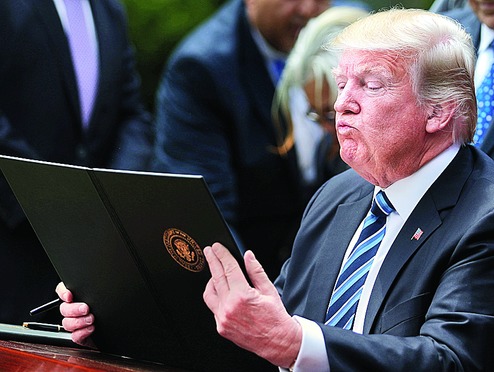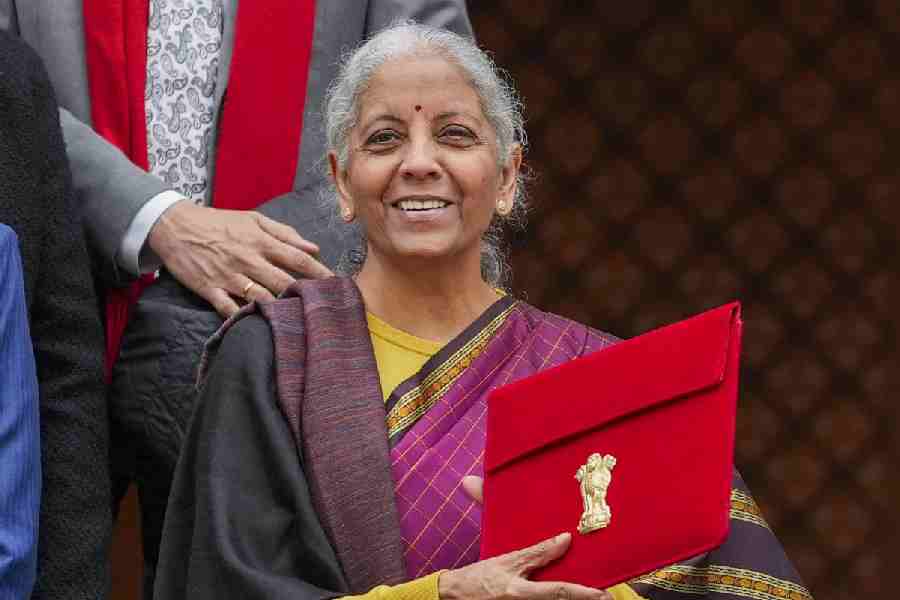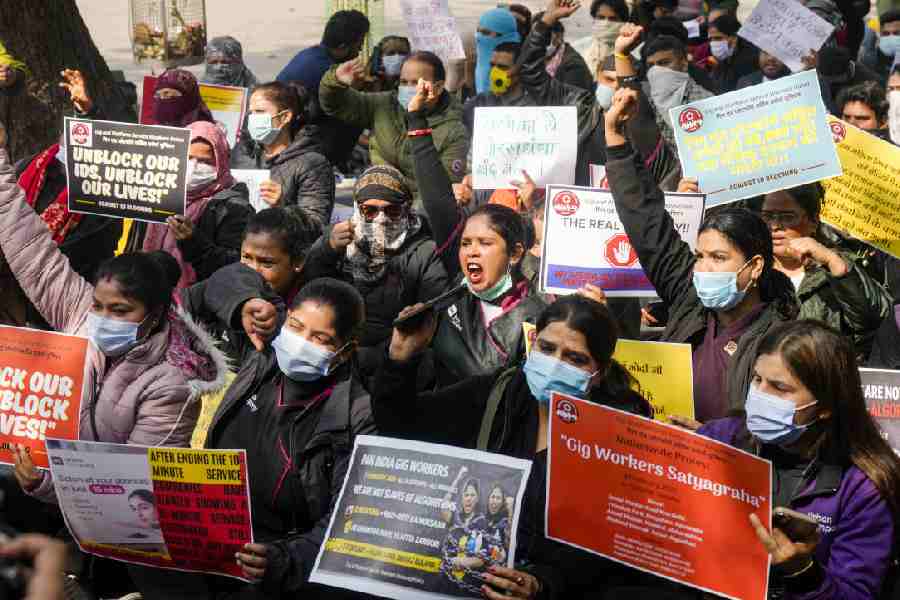
As Donald Trump takes a break from his domestic troubles to play the travelling statesman, it's worth asking what his presidency teaches us about the United States and its politics.
He teaches us that Americans aren't a puritanical people. Even the dour lot between the two liberal coasts seem comfortable with a president whose lewdness and lechery are matters of public record. You might object that all this tells us is that Conservative Republicans are okay with a man doing this stuff, a white man to be precise. That's a reasonable point but in that case why do the French get brownie points for being okay with the peccadilloes of their elected leaders, who, last time I checked, were uniformly white and boringly male? No, this can't just be a white racist thing, it must count as evidence of a new cosmopolitanism.
Trump's tenure is also a teaching moment because it makes the shooting of unarmed black people by white policemen comprehensible to people who aren't Americans. Trump and Jeff Sessions, his attorney general, are keen to let policemen know that they have their back. This is an unfortunate phrase in the context of the shooting of black people in the back but Trump's presidency usefully clarifies the earlier dissonance in the minds of foreigners between a black man in the White House and an unending sequence of unarmed black men killed while retreating or running away from armed white policemen.
I should say police 'person' because the most recent report I read on this subject was about the exoneration of a white policewoman, Betty Jo Shelby, who shot a black man called Terence Crutcher. Crutcher had his hands in the air, he was unarmed and the shooting was caught on camera but Shelby was found not guilty by a jury that included three black people. Her defence was that Crutcher had form, she thought he was going to reach into his car for a gun and she fired because she was afraid. There was no gun found in the car but the jury, Shelby, Sessions and Trump broadly seem to agree that the police need the benefit of the doubt and the widest possible discretion while shooting black people in the course of duty. There is a very real possibility that David Clarke, the black sheriff of Milwaukee, celebrated for holding black people responsible for their own deaths, who clubbed 'Black Lives Matter' with ISIS as threats to American values, who had four people die in one of his jails, might be appointed to a senior position in the department of homeland security.
Nearly half the American electorate voted for Trump. This half was overwhelmingly white. Elections have consequences and arguably one of these consequences is the elevation of men like Trump, Sessions, Bannon and Clarke dedicated to showing black people their place. It is, of course, possible to argue that the white people who voted for Trump didn't vote as white people, that they voted as stranded working class people in rust-belt towns. This would make the appointment of Sessions and Steve Bannon, the intensification of the 'war on drugs' and the likely appointment of Clarke as assistant secretary in homeland security, a series of unintended consequences.
A very real unintended consequence of Trump's election is the re-centring of black polemic and critique. Ta-Nehisi Coates's long essay on reparations for the damage done to blacks by slavery and racism was admired, patronized and dismissed by liberals generally hostile to the idea of monetizing historical responsibility. These liberals might still be sceptical of his prescriptions but the ideological 'whiteness' of the Trump administration makes Coates's main argument - that the game is structurally rigged against black people - more persuasive.
Trump's scattershot prejudices and the more honed and focused racism of his advisors and political appointees made the whiteness of the Republican coalition built strategically over 50 years visible. This public bigotry, together with Trump's attempted travel ban on seven Muslim countries based on a campaign promise, was credited with provoking a liberal resurgence and Indians have read a great deal about the resilience of American institutions in this difficult period.
The courts struck down his orders as unconstitutional, mainstream newspapers redoubled their investigations of executive impropriety, and the deputy attorney general appointed a special counsel to investigate the Trump campaign's Russian links. This certainly teaches foreigners valuable lessons about the institutional strengths of the US political system with its separation of powers and showcases the the alertness and investigative abilities of America's news media. The Washington Post has a solemn motto on its masthead now: "Democracy Dies in Darkness".
But it's worth asking if the concerted opposition to Trump, welcome though it is to liberals everywhere, is fuelled by a principled opposition to the substance of his proposals or whether it's provoked by his indiscretions, his narcissistic refusal to dissemble. To put it another way: is the opposition to Trump born of embarrassment or disagreement? Take the travel ban. If Trump hadn't spoken of a Muslim ban while campaigning, would the courts have struck his order down? Would Charles Krauthammer or George Will have critiqued a Republican president who had the good sense to build the wall, repeal Obamacare, round up illegals and block undesirable Muslims discreetly, with cleverly worded executive orders and without the obvious aid of the alt-right?
By the end of the Republican primaries, there was no daylight at all between the signature policies of Trump, Cruz and Rubio. All of them were born-again nativists. Mike Pence, in his quiet way, is right of Genghis Khan. None of them would provoke the sort of opposition Trump has experienced. The great lesson of the first hundred days of his administration is that a large part of the public opposition to Trump stems from the fact that he embarrasses Americans with his political incontinence and impulsiveness. His lack of gravitas shames them. He's the Fool who read for Lear and somehow got the part. And now they're stuck with him, matinees and nights for four long years.
Okay, I exaggerate. There is much that's admirable about the American opposition to Trump. To read Michael Gerson, a conservative who served George W. Bush, is to be reminded that principle can trump party affiliation. But it's still worth saying that crediting this opposition to the inherent resilience of the United States' political and media institutions is a stretch.
I lived in New York in the lead-up to the invasion of Iraq. Each one of these liberal newspapers and news channels now so eloquent in their opposition to Trump and so committed to the cause of truth, marched in lockstep with a president arguably stupider and more dangerous than Trump merely because he had the good sense to leave the talking to senatorial men in suits. The New York Times suppressed information, buried inconvenient news in the inside pages and lied about weapons of mass destruction to aid the rush to war, David Remnick and George Packer, liberal princes both, made the case for invading Iraq. The willing abasement of the US news media at that time makes India's fawning news channels today seem positively vertebrate. Trump is an easy target because he makes himself absurd. The real test for American institutions will come when his prejudices are channelled by more plausible men.











